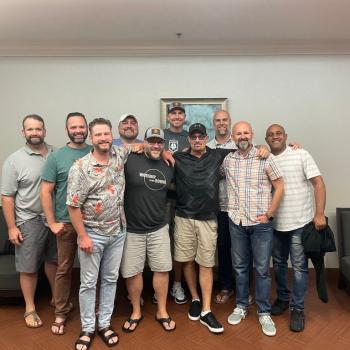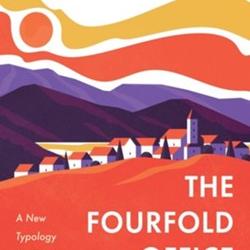As most of you know, I’m someone who challenges Christians to do their homework, which means, learn your history.
Why?
Because we can’t navigate the future unless we understand the past.
And we can’t understand the present unless we explore the past.
In addition, without a solid grasp of history, we will simply repeat the same mistakes over and over again.
What is more, when we look at history, it often tells us a very different story from what we’ve been taught.
My book with George Barna, Pagan Christianity, does that and it was written because of all of the above. The book isn’t about the origins of Christmas, Halloween, Easter Bunnies, rosaries or crucifixes.
No, it’s more shocking.
It delves into the little known roots of things Christians do every Sunday morning around the globe and never think to ask: “why do we do this and where did it come from?”
Things like steeples, pulpits, clergy garb, pews, the Sunday morning Protestant ritual (worship, offering, sermon, etc.), clergy salaries, seminaries, dressing up for “church,” why we call buildings “churches”, etc.
In the same spirit of reexamining historical roots, The First Thanksgiving by Robert Tracy Morgan is another surprising venture into history.
The subtitle says it all, ” What the Real Story Tells Us about Loving God and Learning from History.”
Indeed.
What actually happened at the first thanksgiving? And who cares?
In his new book, historian Tracy McKenzie helps readers understand the true tale of America’s origins and how it impacts Christian people today.
McKenzie doesn’t venerate nor vilify the Pilgrims. Instead, he separates fact from fiction about them.
The First Thanksgiving is easy to read and engaging. It reads like a narrative.
Much of the book seeks to provoke a desire for a kind of historical inquiry that encourages wisdom and spiritual reflection.
Famed historian Mark Noll made this comment about the book,
“Tracy McKenzie’s clearly written and thoughtfully accessible book should be read with appreciation by a wide audience. It combines solid historical treatment of early American Thanksgivings with a perceptive understanding of historical method in general, and it does so by underscoring the profound Christian stake in history. It is one of those rare books that is perfectly suited for young readers but also of real value to those of us who have been around for a long time.” (Mark A. Noll, University of Notre Dame)
According to McKenzie, “the inspiration for this book was an invitation from my church several years ago to give a talk on the first Thanksgiving. In preparing for it, it dawned on me that the topic was a wonderful way to engage Christians interested in history and broach crucial questions in the process. I don’t think I’ve ever met someone interested in history who was first drawn to the past by a piece of dry academic scholarship.”
One thing I thought was very valuable was his caution against making idols out of historical heroes as well not using history for self-serving ends.
According to the book, Thanksgiving today in American culture has little to do with the Pilgrim’s “first Thanksgiving” in 1621.
The book argues that we don’t know much about the first Thanksgiving except that it probably didn’t occur in November, wasn’t eaten indoors, didn’t include turkey (but might have included turnip and eel), wasn’t a multicultural love fest, and wouldn’t have been considered a day of thanksgiving by the Pilgrims in the first place.
Ghasp!
In addition, the celebration of thanksgiving was a New England phenomenon that wasn’t explicitly linked to the Pilgrim feast of 1621.
In other words, the “first Thanksgiving” is pure malarkey.
The same for the assumption of where we got so many of our common church practices today (see the beginning of this post).
McKenzie is a professor of history at Wheaton College and has written on other aspects of American history.
All told, this is an excellent book for what is seeks to do. If you enjoy having your assumptions and presumptions overturned by the testimony of history, then take the plunge and get the book.













